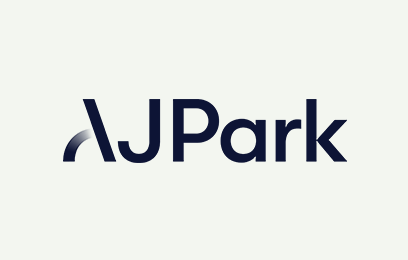A 2017 report from the International Bar Association entitled ‘The not-so-distant future: Blockchain and the legal profession’ took the view that:
‘with the rising importance of smart contracts and the potential for blockchain technology to be used in other facets of legal practice, the role of the legal practitioner will likely evolve to require lawyers to have at least basic coding knowledge and programming skills… .
At the very least, the blockchain revolution may result in law firms beginning to employ candidates from STEM or with coding and programming backgrounds.’
Is this an overstatement? How might blockchain impact the law?
Elements of blockchain giving rise to non-crypto-currency uses
Bitcoin was the first crypto-currency system. Bitcoin stores transactions in a distributed (shared) database of transactions, with every participant in this peer-to-peer system holding a copy on their computers. The database stores transactions in blocks which are linked together to form a chain, hence ‘blockchain’. Blockchains provide a tamper-proof, non-reversible database of transactions. Each transaction is guaranteed genuine by the initiator’s digital signature.
A blockchain may be public (‘unpermissioned’) like bitcoin, but even then, parties are anonymous and only identified by a binary ‘public key’ generated by a public key encryption algorithm. The blockchain shows where every transacted item goes. New transactions can be posted by anyone without an intermediary such as a bank.
Current and proposed uses of blockchain as a legal tool
Legal registers
1. Land registers
Because blockchain stores data permanently and irreversibly, it may be used to record all manner of legal facts to provide legally irrefutable public registers. For example, title to land, or indeed any other property whether tangible or intangible.
Many countries do not have land registration systems and using a blockchain register may be the easiest way to set one up and minimise operating costs. Two countries investigating this are Honduras and Greece. But can people be required to register a change of ownership on the proposed blockchain registers? In Japan, even with a traditional land register, people are not legally required to do so and 11% of Japan’s surface area appears unclaimed.
2. Copyright registers
There are also proponents of blockchain for copyright registers and copyright licensing registers. Of course a copyright register in the true sense is only useful in countries where registration of copyright is either required or is at least advantageous. In the former, and the US is an example, a federal copyright register run by the Copyright Office has long existed and is the only legally recognised register. However, blockchain registers have been proposed to provide proof of the date of creation of a work if that should be contested by a subsequent infringer of copyright.
A copyright licensing register was being set up by Blockai in the US for all or many copyright works, but this has been downgraded to a photograph copyright licensing register and the operating company renamed as Binded. Another company, Copytrack, also operates a photo licensing register.
As well as the registration function, the licence itself may be executed as a smart contract (see below) upon payment of the required royalty.
3. Share registers
Blockchain registers could impact on the traditional function of stock exchanges.
4. Certification systems
Blockchain certification systems have also been proposed and there are already a few set up to certify wine as to its provenance in combination with scanning the QR code on the wine bottle labels. A driving force here is the prevalence of wine fraud in China with bottles of wine valued in the thousands of dollars, such as Bordeaux first growths.
An electronic proof of identity register using blockchain has also been suggested in Europe to replace the use of passports and electronic systems so far implemented in only a few EU countries. Estonia is leading the way with a blockchain system.
Smart contracts
1. The concept
The term ‘smart contract’ was devised by Nick Szabo in 1996, well before the inception of bitcoin. For Szabo, ‘smart’ meant ‘functional’ rather than the notion of super-clever AI (artificial intelligence). And functionality meant self-executing and self-enforcing.
The primitive example he gave was a vending machine for soft drinks, chocolate bars, cigarettes etc. On verifying payment has been received, a vending machine delivers goods (and, if necessary, change) without human intervention.
2. `Ethereum and smart contracts
A number of blockchain-based crypto-currencies now exist alongside bitcoin. One is called Ethereum, where the crypto-currency is called Ether. However, the distinguishing feature of Ethereum so far as legal innovations are concerned is that Szabo-type smart contracts may be stored in the Ethereum blockchain just like a monetary transaction. In Ethereum, user programmable ‘virtual machines’ are set up at each node to run or execute the smart contracts when required. Computer programmes are written to implement the terms of the smart contracts. The most popular programming language used is Solidity.
An Ethereum node will start running a stored smart contract when it receives a ‘message’ and enough ‘gas’ (transaction fees in the ether currency) from a user, an ‘oracle’, or another smart contract. An ‘oracle’ is an input generated by an electronic device which senses and detects real-world events, which could be as simple as a pre-set clock time or someone entering a door in a flat let under a smart contract.
3. Initial coin offerings
Initial coin offerings (ICOs) are already in use in place of initial public offerings (IPOs) to raise significant new capital. They are a sale of virtual tokens issued on a blockchain in exchange for conventional currencies or even crypto-currencies.
Legal concerns
-
When a transaction has gone wrong there is no known human to complain about!
-
Bitcoins may be used to pay for illegal goods and services on the dark web
-
Does an intangible bitcoin or other crypto-currency constitute property?
- At common law maybe, but not in jurisdictions following the German civil law system.
- Do any rights or obligations attach to it?
- A bitcoin can be considered as simply data in a database.
- Can data be property?
- New Zealand Inland Revenue considers crypto-currencies to be intangible property like shares.
-
Privacy law breaches
- The blockchain is a public database.
- How will the new EU General Data Protection Regulation (GDPR) handle blockchains?
- What about the CJEU ‘right to be forgotten’?
- These issues may be circumvented because blockchain participants are known only by their public key addresses.
-
Contract law
- A judge can’t construe a smart contract.
- Contract already executed.
- No terms can be implied to address perceived injustices.
- No possibility of rescission for mistake.
- And not all software is bug-free.
- Notarisation and consular legalisation are side-stepped.
-
Matrimonial property law
- Problems in finding out if bitcoins are part of matrimonial property!
- How to divide them up between husband and wife?
Political concerns
-
Unpermissioned blockchain systems function without central or regulatory authority such as government. This concerns many governments, even some which are democracies and not autocratic. As has been commented, crypto-currencies constitute ‘the separation of money and state’, among other things. A worrying consequence is that bitcoins may be used to anonymously pay for illegal goods and services on the dark web.
-
The security of crypto-currencies is another common government concern. In January 2018 there was the $534 million theft of NEM currency from the Coincheck Crypto Currency Exchange in Japan. A famous attack on Ethereum occurred in 2016, where a hacker stole $50 million of $150 million raised in a DAO crowd funding for venture capital. It is not certain whether there were flaws in the crowd funding smart contract code or even in the Solidity language itself.
-
The implementation and use of blockchains may also infringe encryption laws. For example, China and Israel make it illegal to import encryption software and/or encrypted products. Blockchain software can be said to use encryption elements as its building blocks.
-
Many other countries such as the Wassenaar Treaty signatories (which include New Zealand) regulate the export of encryption products and ‘export’ includes internet transfers of encryption software. A licence from the government would be required for online transfer of blockchain software from any of these countries.
-
There is also concern about those countries which do not legally recognise transactions executed by digital signatures, bearing in mind that this is the basis for authentication of participants in blockchain transactions.
-
The whole notion of non-regulated crypto-currencies has frightened some countries such as South Korea, China and India, who have banned crypto-currency trading in their own countries. However, potential voter backlash has resulted in South Korea backing down, at least temporarily.
-
Finally, there are the obvious issues of tax avoidance and money laundering. In relation to income tax in New Zealand, Inland Revenue has decided that income from crypto-currency trades and payments is taxable.
This article was first published in the June edition of Lawtalk.



